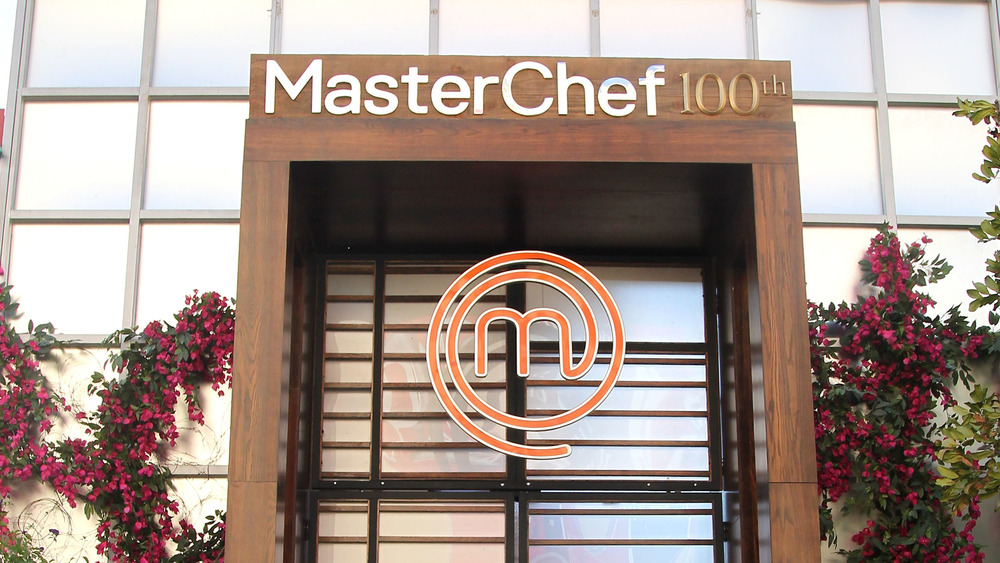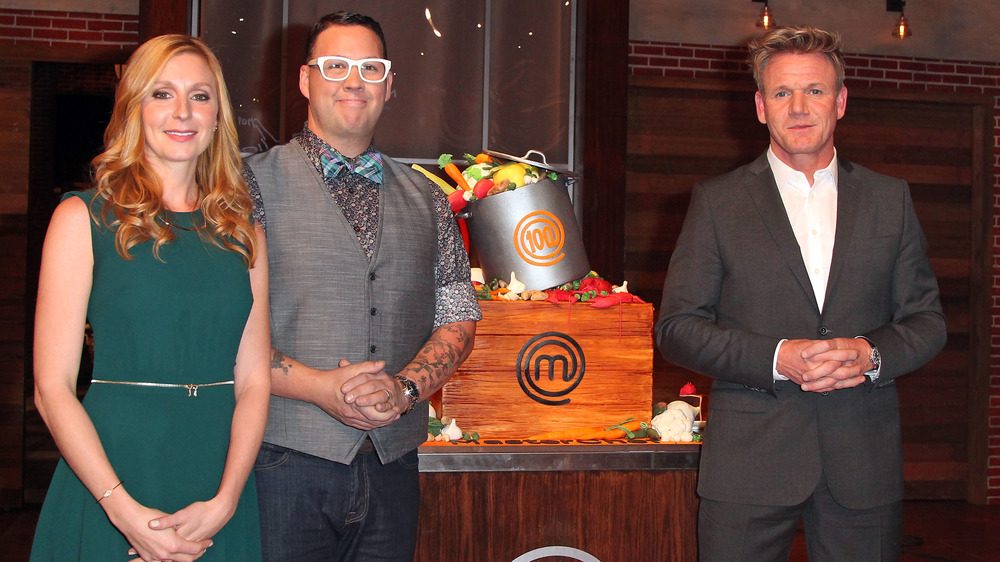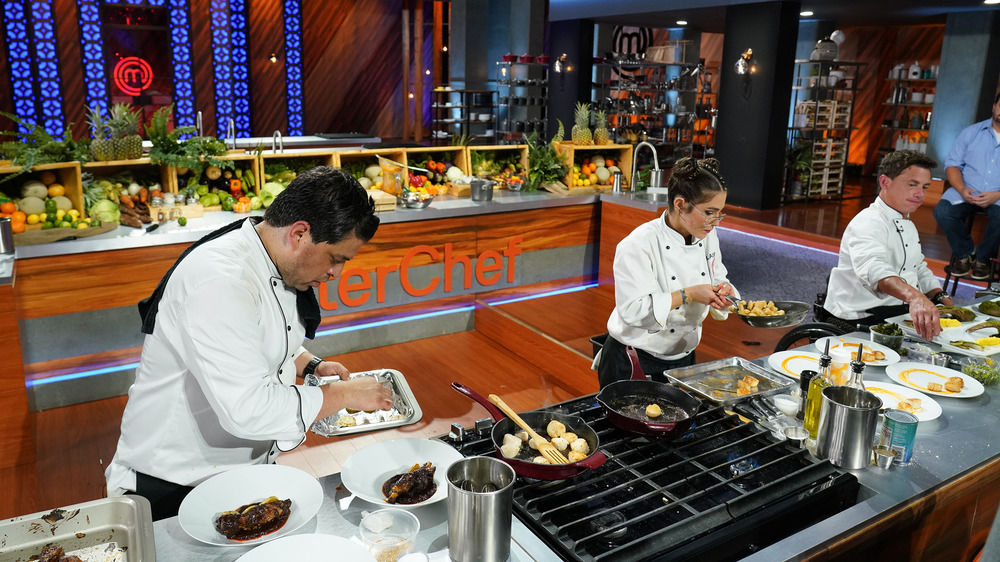Weird Rules That MasterChef Contestants Have To Follow
Have you ever found yourself lounging on the couch on a Saturday afternoon, watching season number I-don't-even-know-anymore of MasterChef, and casually thinking...Should I try out?
While we can't speak to your cooking abilities, we can certainly assure you of one thing: Being a contestant on MasterChef is no joke, so you best be prepared before making your couch daydream a reality by signing up for next season's audition!
First thing's first: No professional chefs allowed. Yes, seriously — MasterChef only recruits and signs off on self-taught, casual cooks (via Delish). Some reality TV rules like this are a given, no matter what series it is. Take, for example, the game show Big Brother, where all contestants must live in the California home for the duration of the season (or until they're booted), according to the show's official casting website. Well, things are relatively the same in Gordon Ramsay's TV kitchen. Former contestant Elise Mayfield revealed to AV Club that producers gave her less than two weeks notice to get to California — that's not even a full heads up for the full-time job you're likely leaving behind! So if you aren't willing to temporarily relocate to the Golden State at the drop of a hat, then your MasterChef reality TV dreams are pretty much a no-go.
Potential MasterChef contestants are forced to go through an intense pre-show evaluation
That's not the only strange rule competitors must follow on the set of the Fox hit MasterChef. In fact, one of the most surprising requirements takes place before contestants even make it to the set.
Jessie Glenn, a one-time hopeful vying for the MasterChef top prize, details her experience with producers in a full exposé for Salon. According to Glenn, auditioners are required to partake in a lengthy personality evaluation and one-on-one with a psychiatrist before getting the official sign-off to join the series. Don't expect to get a copy of the results, though — Glenn says that you're never shown them, likely because "it seemed to [Glenn] that the point of the test is to judge what dramatic traits each person has that could be harvested later for a plot twist." And MasterChef isn't the only show that does this, when Glenn asked the doctor if they perform these consultations for other shows, they replied "'Yes! The Biggest Loser, American Idol, all the Fox shows.'"
Glenn explains that the "invasive" pre-filming prodding doesn't end there, either; potential contestants are also required to meet with an investigator, whose purpose is to dig into every last bit of your personal history before approving you for TV. Even though Glenn says they hadn't thought they had done anything that would prevent them from being selected as a contestant for the Fox hit, they were still incredibly nervous and concerned they "sweated guilt." We don't blame them! We can imagine being interrogated by a psychiatrist followed by an investigator would be a stressful experience.
The MasterChef set is a strict phone-free zone, with officials watching at all times
Since MasterChef cooks are expected to be self-taught, there are strict rules in place to ensure no one has an upper hand. According to AV Club, that means that no recipes (yes, even for baking) or phones are allowed, which — let's be real — is a good rule. It's a little too easy to Google search "potatoes," find thousands of gourmet roasted russet recipes, and become a MasterChef in your own kitchen these days.
But, as AV Club points out, the no-phone rule ultimately means very minimal interaction is allowed with friends and family back home. So if you're looking to launch your TV cooking career, MasterChef may not be the place to do it if you easily get homesick.
With so many rules in place, MasterChef has to be on top of things to make sure the set is an even playing field for all of the cooks. Lucky Peach spoke with MasterChef and MasterChef Junior judge Christina Tosi, who assured readers that there is a "team of standards-and-practices officials who watch the contestants' every move." That way, no one's sneaking potato recipes on a burner phone under the kitchen table. But that doesn't mean the contestants are totally on their own! While it doesn't usually make the final cut, Tosi says the judges do walk around while the competitors are cooking and give pointers to help them succeed. After all, nobody actually wants the contestants to fail. (Okay — maybe the producers would be okay with a few failures here and there, but that's just good TV.)
If your reality TV kitchen dreams are now fizzing out, we can't say we blame you — that's a whole lot of rules, after all. Our advice? Maybe just stick to Saturday MasterChef Junior re-runs from here on out.


